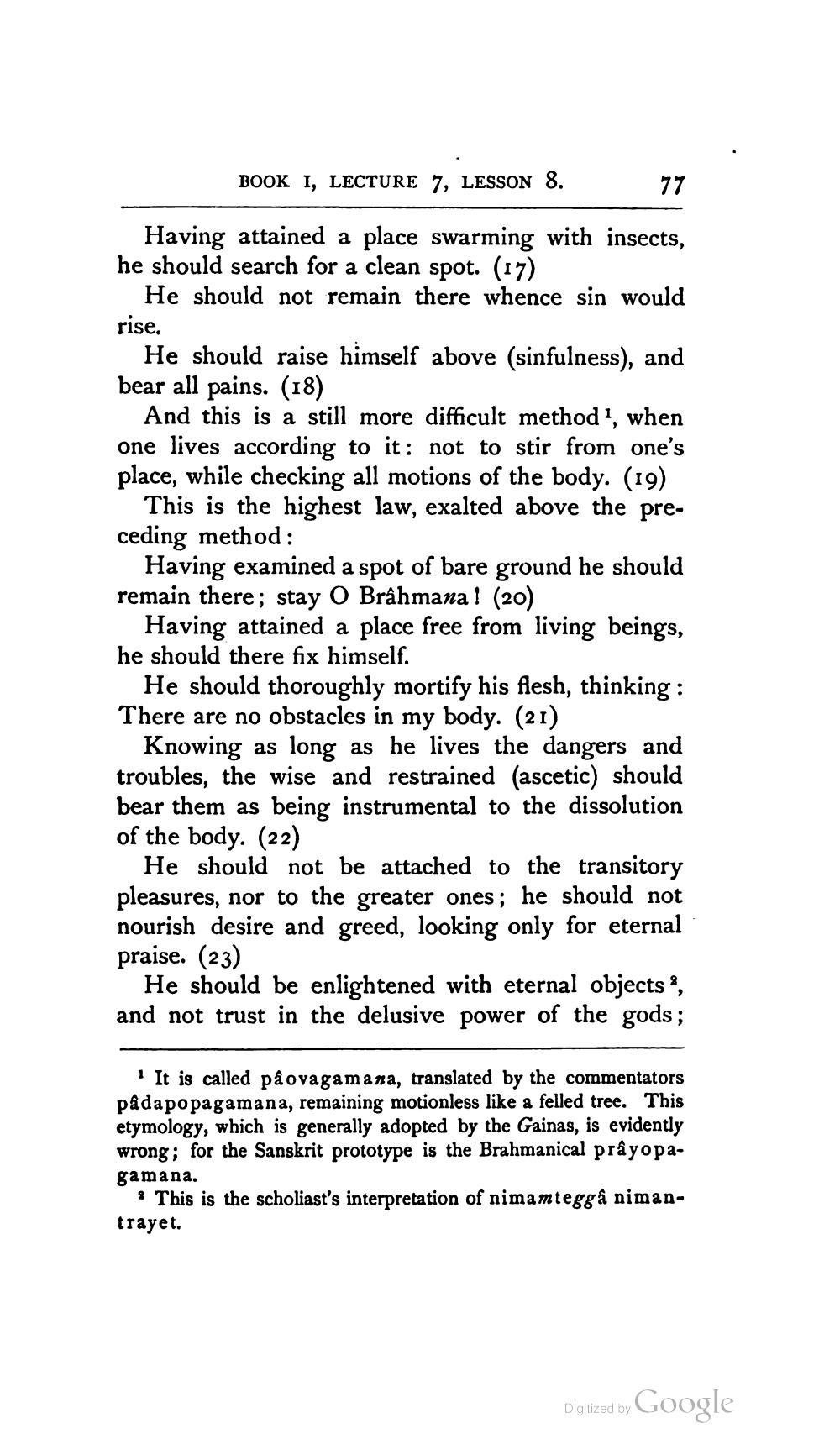________________
BOOK I, LECTURE 7, LESSON 8.
77
Having attained a place swarming with insects, he should search for a clean spot. (17)
He should not remain there whence sin would rise.
He should raise himself above (sinfulness), and bear all pains. (18)
And this is a still more difficult method, when one lives according to it: not to stir from one's place, while checking all motions of the body. (19)
This is the highest law, exalted above the preceding method:
Having examined a spot of bare ground he should remain there; stay O Brâhmana! (20)
Having attained a place free from living beings, he should there fix himself.
He should thoroughly mortify his flesh, thinking : There are no obstacles in my body. (21)
Knowing as long as he lives the dangers and troubles, the wise and restrained (ascetic) should bear them as being instrumental to the dissolution of the body. (22)
He should not be attached to the transitory pleasures, nor to the greater ones; he should not nourish desire and greed, looking only for eternal praise. (23)
He should be enlightened with eternal objects ?, and not trust in the delusive power of the gods;
1 It is called på ova gamana, translated by the commentators pâdapopagamana, remaining motionless like a felled tree. This etymology, which is generally adopted by the Gainas, is evidently wrong; for the Sanskrit prototype is the Brahmanical prâyopagamana.
? This is the scholiast's interpretation of nimamtegga nimantrayet.
Digitized by Google




